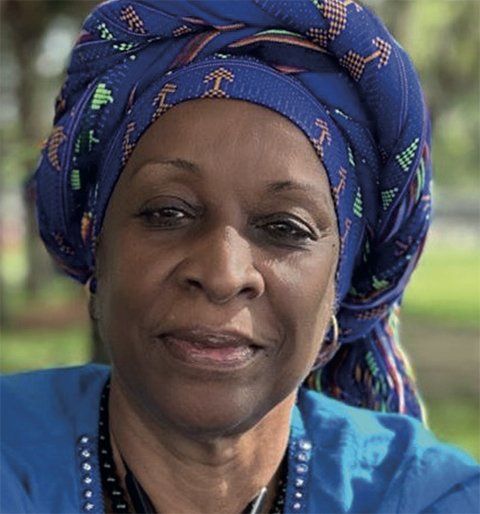An education that connects so we all belong

Bayyinah Bello is a teacher, writer, humanitarian worker and world renowned historian with expertise in Haitian and Pan African history. She is the founder of FONDASYON FELICITEE which is based in Tabarre, Haiti for the past 21 years. It is run with the help of a very efficient corps of volunteers.
With the permission of all those who transmitted knowledge before me. In the names of all those who were passionate about learning, experimenting and transmitting to the next generation, I greet you who read this text now.
I am from Ayiti, starting teaching before I was four, according to my grandmother. We, Ayitians, are descendants of great knowers of Afrika, who built pyramids, invented writing, mathematics; innovators who forged tools from all sorts of metals and stones, including granite! However, after being kidnapped by Euro-Christian enslavers we lost a lot of our know-how, including even, the knowledge of Self.
Today, we must reinvent education if we are to get back to our sacred sciences. Music must return to its primary fundamental subject status. Every child must be trained to listen attentively, to make and play instruments. That will facilitate the average person’s ability to casually learn a half dozen foreign languages with ease.
Education today, must become justice imperative!
The next generation must be taught to search and destroy injustice in language, arts, maths, geography, history, laws, and medical sciences. That is the only way that we will fabricate the types of hearts and minds that will be equipped to steadily and relentlessly work at producing a better world, hour after hour.
While another team works minute after minute at insuring that injustice doesn’t creep in as we progress.
All students must go back to scrutinizing the sky, what they now call astronomy and have turned it into an elitist study. Long ago, we practiced reading the sky to sharpen our eyesight, to read what’s coming up on Earth; to figure out the schedules of floods, hurricanes, earthquakes..., to measure ourselves and nurture humility as we observe the vastness of our world.
Geometry, being the first form of writing, must be introduced to the very young. The practical application of geometry in our daily lives must return. The spirituality of shapes, movements and sounds must be taught to everyone. The integrality of the science of spirituality must be offered to all. The oneness of life must be returned to the People.
With such an education that would open the hearts and minds of our children, we would produce a population of true humans. We would have humane societies where the average person is keen on being just to his/her environment. We would have people who really care for all life forms. We would create a civilization where Knowledge is Queen, Justice is King, where all interactions are coloured with respect and fairness to all.
First published in Engage 23.




